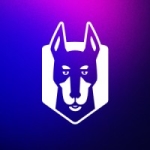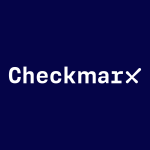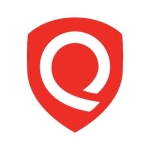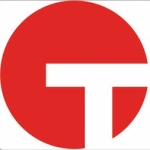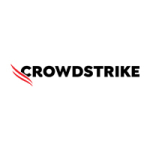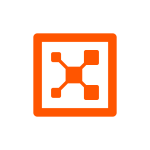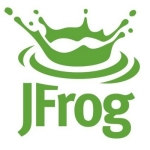What is our primary use case?
We use Singularity Cloud Workload Security to protect all our servers from malware, both present and future. We also use it to protect our user endpoints, such as workstations and employee laptops.
We recently switched from Windows Defender to SentinelOne endpoint protection after a few of our laptops were infected with malware. SentinelOne has been protecting our laptops, endpoints, and servers for two years now, and it has performed well in internal and external audits.
We currently have a hybrid Active Directory environment. SentinelOne itself is a SaaS-based product, so it is fully cloud-based. However, we need to install agents on all of our endpoints and cloud services.
How has it helped my organization?
Singularity Cloud Workload Security has real-time threat detection capabilities. We have tested it with multiple clients and ourselves, and it has detected malware every time we have been attacked. Compared to other major security vendors, Singularity Cloud Workload Security had the best detection rates for all the malware we threw at it during our proof of concept.
Automated remediation is policy-based, which makes it very useful. The SentinelOne platform gathers all information about how the threat played out and all the changes that were affected on our system. Using this information makes it very easy to remediate all the damage because we know what happened. Automated remediation is amazing and a key differentiator from other competitors.
For Linux kernels, the agent supports almost all platforms, including legacy Windows, macOS, and Linux. We have a few Linux servers, and the mitigation and all the other features work just as well as on the other operating systems.
Using the Deep Visibility Console, we can thoroughly investigate everything that was called or changed on a computer. This gives us visibility into virtually everything that happens on all of our endpoints at all times, in real-time. This has allowed us to find threats that other vendors would have missed. We can also use the Deep Visibility Console to perform threat hunting. For example, if a threat has been moving around our network, we can track it down to see exactly where it is moving to and how it is working.
The historical data record provided by Singularity Cloud Workload Security after an attack is good. For data retention in terms of threats, we have a one-year retention period. This is a long time, and it is very useful for our insurance policies, as we often need to comply with them. For compliance purposes, the one-year retention period is perfect for us. For visibility logs, for example, we are ingesting some logs, and I believe the retention rate is actually fourteen days.
Singularity Cloud Workload Security has reduced our MTTD. Previously, with Defender, it would sometimes fail to detect threats. Now, we detect and remediate many more threats automatically, almost instantaneously. For example, if we download a malware file, we usually cannot even open it because Singularity Cloud Workload Security detects it automatically with a super-fast response time.
Our MTTR is automatic. As soon as a threat is detected, remediation is performed automatically, according to our policy. We can even generate a report of the remediation and all affected files. This allows us to see everything and ensures that remediation is performed quickly.
Singularity Cloud Workload Security has freed up our SOC staff's time to work on other projects. Before, we were considering hiring a 24/7 SOC team, but with SentinelOne's vigilance package, they take care of almost everything for us. We no longer need an employee to monitor logs and threats 24/7.
Since we are freeing up some time from the operations side, our IT administrators and security personnel do not have to constantly monitor the console to see what is happening. Because we trust the product to take care of malware for us, our productivity has definitely increased. We only check the logs once a week.
Singularity Cloud Workload Security works well with other vendors, so we can even have two EDR solutions if we want to. The exclusions can be done through the console, which is very easy to use. It gives us a list of all the applications that we have installed on all our systems and makes it easy to create different types of exclusions. For example, we can create exclusions for performance reasons or to suppress alerts. There are a lot of options, and they are all very easy to use.
What is most valuable?
My favorite feature is Storyline. It creates a neat graph that shows us how any threat played out, in real time. We can see all the information about what was modified or changed on our system, such as files that were modified, created, or deleted, and register keys that were created or edited. For a SOC analyst, this information is super useful. We can deep dive into all the information and see exactly what happened on each computer individually.
The second feature is actually part of the SDR platform, and it provides native integrations with other security software vendors, such as Okta or Azure AD. This allows us to ingest all of our audit logs for security events and to take action on them. For example, we can set up an automation alert so that if a threat is detected on an endpoint, we can automatically take action on our Okta or AD environment, such as locking the account that was signed in or forcing a password reset.
What needs improvement?
I know that SentinelOne is working on additional integrations for their XDR platform, and I would definitely prefer more integrations. I understand that many more integrations are coming soon but by the end of the year. I would like additional integrations. Currently, we have integrations with Azure AD, Okta, Mimecast, and Netscope. Many of our clients and we also use firewalls from Cisco, Juniper, and so on. It would be helpful to be able to retrieve audit logs or actionable items from these firewalls.
For how long have I used the solution?
I have been using Singularity Cloud Workload Security for two years.
What do I think about the stability of the solution?
Singularity Cloud Workload Security is stable, and we have not experienced any downtime.
The stability of Singularity Cloud Workload Security is similar to that of Microsoft Defender.
What do I think about the scalability of the solution?
Singularity Cloud Workload Security is infinitely scalable, with a multi-tenancy feature that allows us to have multiple sites, such as physical sites. For example, if we have two locations, we can easily create admins who have access to only one site or to all sites. It scales really well, regardless of our environment.
The auto-scaling feature is user-friendly. As we install more endpoints, they will simply show up in the console, allowing us to create our own physical sites with their own admins and different policies.
How are customer service and support?
My interaction with technical support was pleasant. They gave me a few tips on how to integrate the new system. They also sent me some documentation, which was already available to me, but they saved me the time of searching for it. They even offered to schedule a team call to discuss the integration and have a team member help us directly. The only downside is that the entire interaction was text-based, so it could be difficult to get a definitive answer to some questions.
How would you rate customer service and support?
Which solution did I use previously and why did I switch?
We previously used Microsoft Defender, but some of our laptops were infected with malware anyway. Because of this, we had to redeploy all of our laptops. We therefore concluded that the solution was not working as well as it should in terms of detection and response so we switched to Singularity Cloud Workload Security.
How was the initial setup?
Deployment was straightforward. The agent is simple to deploy, and we only need to deploy it to all of our endpoints. It is a simple installation that requires our site token. We can deploy it through group policies, Intune, or any mass deployment software. I completed the deployment myself.
Which other solutions did I evaluate?
We evaluated CrowdStrike, Carbon Black, and Bitdefender, and found that Singularity Cloud Workload Security had a much better remediation process. This is because Singularity Cloud Workload Security uses AI-powered detection and remediation, instead of relying on human analysts. This means that threats can be detected and remediated much faster than with traditional security solutions. Another factor that influenced our decision was pricing. SentinelOne is not too expensive compared to other providers, and it offers a wide range of integrations with other security products.
What other advice do I have?
I would rate Singularity Cloud Workload Security nine out of ten.
Maintenance is minimal, requiring only occasional updates. When a major update is available, we receive an email notification. We then accept and deploy the update to all eligible endpoints through the console.
Singularity Cloud Workload Security is very easy to deploy and has one of the best detection rates among vendors. It has a very user-friendly UI that provides a high-level overview of current threats and system status, as well as the ability to drill down into analytics and threat indicators using the visibility console. It is so user-friendly that anyone can use it, regardless of their expertise level. However, for more experienced users, there is also the option to dig deeper into the data.
Singularity Cloud Workload Security helps us spend less time on threats and more time on our core competency, which is consulting work. This definitely improves our productivity and innovation.
Which deployment model are you using for this solution?
Public Cloud
Disclosure: PeerSpot contacted the reviewer to collect the review and to validate authenticity. The reviewer was referred by the vendor, but the review is not subject to editing or approval by the vendor. The reviewer's company has a business relationship with this vendor other than being a customer: Reseller










